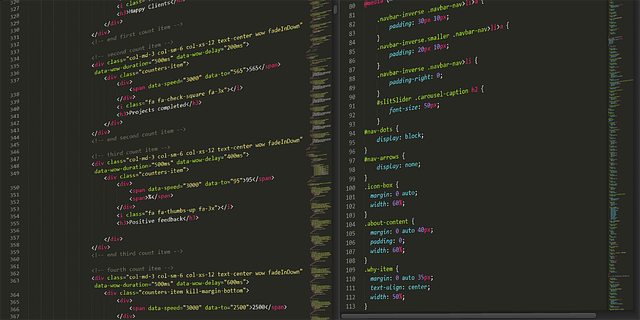Learning Topics Commonly Found in Introductory IT Courses
Introductory IT courses in Germany often cover basic subjects that help learners become familiar with digital tools and systems. These may include working with data, using standard software, and understanding how information flows in technical environments. The structure of each course can vary, but many of them introduce similar core topics at the beginning. This article gives a general overview of areas that are commonly seen in early-stage IT training.

What are the basic digital concepts introduced in IT education?
Introductory IT courses often begin by familiarizing students with fundamental digital concepts. These typically include:
-
Binary and hexadecimal number systems
-
Basic computer architecture (CPU, memory, storage)
-
Introduction to operating systems and their functions
-
Networking basics and the OSI model
-
Information security principles
Understanding these concepts provides a crucial foundation for more advanced topics and helps students grasp how digital systems function at a fundamental level.
Which common tools and systems are taught in beginner courses?
Beginner IT courses in Germany usually introduce students to a variety of essential tools and systems that are widely used in the industry. These may include:
-
Office productivity suites (e.g., Microsoft Office, Google Workspace)
-
Basic programming languages (e.g., Python, Java)
-
Version control systems (e.g., Git)
-
Database management systems (e.g., MySQL, PostgreSQL)
-
Virtualization tools (e.g., VirtualBox, VMware)
Exposure to these tools helps students develop practical skills that are immediately applicable in many IT-related roles and projects.
How do introductory courses cover topics related to structured data and workflow?
Structured data and workflow are crucial aspects of IT that are typically addressed in introductory courses. Students often learn about:
-
Database design and normalization
-
SQL (Structured Query Language) for data manipulation
-
Basic data structures and algorithms
-
Introduction to data modeling
-
Workflow management and project planning tools
These topics help students understand how to organize, manage, and manipulate data effectively, which is essential in most IT roles.
What programming concepts are typically introduced in beginner IT courses?
While not all introductory IT courses focus heavily on programming, many do include basic programming concepts such as:
-
Variables and data types
-
Control structures (if-else statements, loops)
-
Functions and modules
-
Object-oriented programming basics
-
Simple algorithms and problem-solving techniques
These concepts provide a foundation for those who may wish to pursue more advanced programming courses or specialize in software development.
Are there any unique aspects of IT education in Germany?
IT education in Germany often emphasizes practical application and industry collaboration. Some unique aspects include:
-
Dual study programs that combine academic learning with practical work experience
-
Focus on Industry 4.0 concepts and technologies
-
Strong emphasis on data protection and privacy regulations (e.g., GDPR)
-
Integration of sustainability and green IT principles
-
Collaboration with local tech companies for real-world projects
These aspects help ensure that students are well-prepared for the German job market and understand the specific requirements and trends of the local IT industry.
What certifications or qualifications can be earned through introductory IT courses?
Many introductory IT courses in Germany offer opportunities for students to earn industry-recognized certifications or qualifications. Here’s a comparison of some common options:
| Certification/Qualification | Provider | Key Features | Cost Estimation |
|---|---|---|---|
| CompTIA IT Fundamentals+ | CompTIA | Covers IT basics, suitable for beginners | €200 - €300 |
| Microsoft Technology Associate (MTA) | Microsoft | Entry-level certification for various Microsoft technologies | €100 - €150 per exam |
| Cisco Certified Technician (CCT) | Cisco | Focuses on networking fundamentals | €125 - €175 |
| Oracle Certified Associate (OCA) | Oracle | Entry-level database certification | €200 - €250 |
| ITIL Foundation | Axelos | Covers IT service management basics | €300 - €400 |
Prices, rates, or cost estimates mentioned in this article are based on the latest available information but may change over time. Independent research is advised before making financial decisions.
These certifications can provide valuable credentials for students looking to enter the IT job market or continue their education in more specialized areas of information technology.
In conclusion, introductory IT courses in Germany cover a wide range of essential topics that provide students with a solid foundation in digital concepts, tools, and systems. From basic programming and data structures to industry-specific tools and certifications, these courses equip learners with the knowledge and skills needed to navigate the ever-evolving world of information technology.






